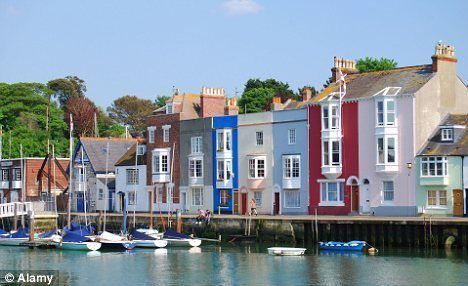Second home owners could lose out on tax breaks worth thousands after the Government’s adviser called for a crackdown on holiday lets.
The Office for Tax Simplification recommended it stops owners of furnished holiday lets from offsetting their mortgage interest payments against their income tax bill – a benefit that matters even more since rates have soared.
Scrapping the so-called “furnished holiday let system” would bring an end to one of the last tax-efficient forms of small-scale property investment. This would force holiday let owners to pay tax on their earnings in the same way as traditional buy-to-let landlords.
It means that someone renting out a four-bedroom house in Cornwall as a holiday let will pay an extra £2,000 a year in tax, according to calculations by RSM accountants.
Under the current rules, a holiday let owner earning £24,000 a year pays an estimated £5,775 in income tax, assuming the property is owned jointly by a couple who are both higher rate taxpayers. If the “furnished holiday let” system is scrapped, this bill would surge to £7,687, RSM found.
Until 2017, buy-to-let landlords also had this perk, but it was phased out and replaced with a 20% tax credit in 2020. Holiday let landlords, however, kept the relief.
Chris Etherington, of RSM, said: “If they get rid of that benefit, the ultimate result is that people will sell up because their properties will become commercially unviable.”
But selling up could also become more expensive. The FHL system means that holiday let owners can qualify for Business Asset Disposal Relief, which allows owners to pay capital gains tax at 10% when they sell. If this was scrapped, they could pay at the same rate as buy-to-let landlords, which is 28% for a higher rate taxpayer.
The contrast between how the two types of investment are taxed has been criticised for encouraging landlords to turn long-term lets into holiday lets. This has acutely worsened housing shortages in coastal hotspots.
“It is an area where the Government’s tax policy does not fit with the fact that we have a housing shortage,” Mr Smith said.
OTS reports can directly influence government policy. Last year, the Government accepted five recommendations in the OTS’ capital gains tax review, including extending the payment deadline to 60 days. It also agreed to consider a further five, including the system of nominations for Private Residence Relief.
Mr Smith said: “These kinds of reports tend to feed into the overall design of the tax system.”
In September, then-chancellor Kwasi Kwarteng announced plans to disband the OTS in his mini-Budget.
The OTS has recommended that the Government considers “whether there is continuing benefit to the UK in having a separate tax regime for furnished holiday lettings”.
Part of the OTS’ aim is to differentiate between properties that are run as legitimate businesses and those which are second homes for personal use.
If the Government scrapped the FHL system, the OTS recommended allowing holiday lets that are clearly businesses to be taxed as trades, which would have more preferential rates.
The OTS said that otherwise the Government should instead restrict the regime to properties that are used for commercial letting. It recommended doing this by banning properties that are used personally by their owners, meaning that people who have second homes that they let out for part of the year would lose any benefits.
There are about 127,000 furnished holiday lettings businesses that are owned by individuals. The OTS report found that “this represents a relatively small core of people running a substantial short-term letting business, and a long tail of second-home owners renting one property”.
Regulating Airbnb – Mp Claims Cross-Party Backing For Clampdown
Labour MP Rachael Maskell says she has won the support of 10 other members of parliament from across the political divide for her latest attempt to regulate Airbnb and other short let platforms.
Maskell is launching her Airbnb and Holidays Lets Licensing clause via an amendment to the Levelling Up and Regeneration Bill in the House of Commons. If it became law it would require Airbnb or short-term let holiday properties to be licensed, and would enable councils to limit or deny licenses in areas with an acute shortage of housing for local people.
In York, where Maskell is MP, it is estimated that there are more than 2,000 properties listed as short-term rentals, 85% of which are for entire homes rather than annexes or individual rooms.
She has told local news services: “Failure to act on this issue is adding to the daily misery of families who can’t find a home and are finding themselves forced out of their local areas, as housing supply tightens and rents …
“We know that in some tourist hotspots over 50% of homes are now short term holiday lets, and there are little signs of this slowing down.
“We urgently need to get a grip on this situation before it is too late, but all we get out of the Government is consultation and prevarication.
“As things stand, in a city like York where there is so much planned development, there is a real risk that investors will flip most new homes straight to short term lets.
“And despite the city of York’s eye-watering investment in the site, York Central will just become another Airbnb Central.
“Talking to constituents, I also know the concentration of these properties in some communities is causing serious misery and disruption, and yet as things stand local people are powerless to do anything about it.”

